Current
Research Associate (m/w/d)
Salary level E 13 TV-L, 100%, temporary for 2 years - with option of extension
Research project: "Systems, Algorithms and Cognitive Models for Predicting Individual Human Reasoning (PREDIR)"
Temporary employment is subject to the provisions of the Wissenschaftszeitvertragsgesetz (WissZeitVG) and the Sächsisches Hochschulfreiheitsgesetz (SächsHSFG) as amended.
Description of Responsibilities:
- Participation in the research activities of the Professorship of Predictive Analytics with an emphasis on the areas human deductive reasoning, cognitive modelling, psychological experiments, and knowledge representation
- Focus on analysing and evaluating psychological theories about deductive and inductive reasoning and developing cognitive models
- You will use your research results for scientific publications and your own qualification
- The position allows for further scientific qualifications (in Psychology, Cognitive Science or Computer Science)
Requirements:
- Applicants are expected to have an above-average academic degree (Master, Diploma or a PhD) in one of the three areas Cognitive/Mathematical Psychology, Cognitive Science, Computer Science
- Experience and interest in the research activities of the professorship
- Basic knowledge in at least three of the following areas: Psychological experiments, cognitive modelling, reasoning and decision making, algorithm development, practical knowledge of programming languages (e.g. Python, R), statistical analysis
- A good command of the English language is mandatory
- You must also fulfil the recruitment requirements in accordance with § 71 SächsHSFG
Please refrain from sending original documents, as your written documents will not be returned but will be destroyed in accordance with data protection regulations. If you would like your documents to be returned, please enclose a stamped, addressed envelope with your application.
Applications should be sent electronically (preferred) or by post to the address below by 31 of July 2024, quoting the keyword "MeTech | PREDIR", together with the usual documents. Please note that, for security reasons, no electronic applications or attachments to applications can be considered in the recruitment process if they are made available for download via hyperlinks to third parties.
Technische Universität Chemnitz
Zentrum für Mensch und Technik
Professur Prädiktive Verhaltensanalyse
Ansprechpartner: Prof. Dr. Dr. Marco Ragni
09107 Chemnitz
E-Mail: simone.daeubner@hsw.tu-chemnitz.de
(Reported on 17.05.2024)
Paper für die ICCM
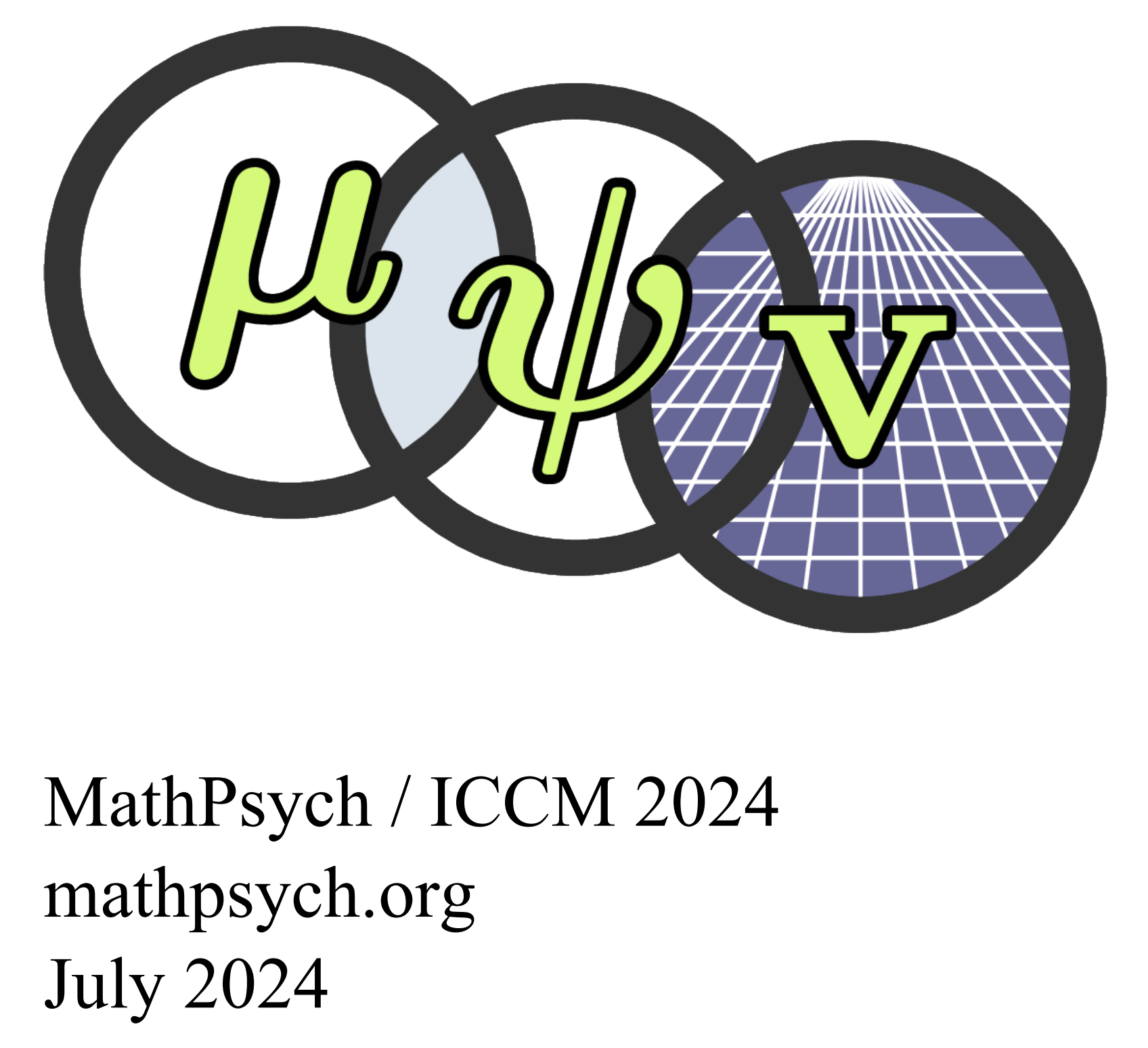 We are pleased to inform you that the following articles of our professorship have been accepted to be published at the 22. International Conference on Cognitive Modeling (ICCM) :
We are pleased to inform you that the following articles of our professorship have been accepted to be published at the 22. International Conference on Cognitive Modeling (ICCM) :
- "Predicting Complex Problem Solving Performance in the Tailorshop Scenario" - Daniel Brand, Sara Todorovikj & Marco Ragni
- "Model Verification and Preferred Mental Models in Syllogistic Reasoning" - Sara Todorovikj, Daniel Brand & Marco Ragni
(Reported on 17.04.2024)
Papers for CogSci
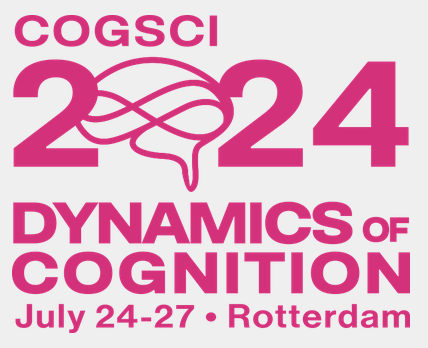 We are pleased to inform you that the following articles of our professorship have been accepted to be published at the 46. Annual Meeting of the Cognitive Science Society
We are pleased to inform you that the following articles of our professorship have been accepted to be published at the 46. Annual Meeting of the Cognitive Science Society
- Necessity, Possibility and Likelihood in Syllogistic Reasoning - Daniel Brand, Sara Todorovikj & Marco Ragni
- Breaking Focus: The impact of disruptive distractions on academic task performance - Jenny Rettstatt, Daniel Brand & Marco Ragni (A contribution for the MeMo Project)
- Evaluating the Predictive Power of Tasks and Items in IQ Tests - Joshua Blickle, Sara Todorovikj & Marco Ragni (A publication of the Master Thesis of Joshua Blickle, supervised by Sara Todorovikj)
- Saccadic Eye Movements and Search Task Difficulty as Basis of Modeling User Knowledge in Information Seeking - Ying-Hsang Liu, Andreas Nürnberger, Jenny Rettstatt & Marco Ragni (A publication with our guest scientist Ying-Hsang Liu)
(Reported on 15.04.2024)
Paper for the Digital Feedback in Research and Practice International Conference
We are pleased to inform you that the following article has been accepted to be published at the Spotlight on Language Teaching International Conference: Digital Feedback in Research and Practice
- "Feedback on Study Time and Distraction-free Learning Environment" - Manuel Schmitz, Jenny Rettstatt, Markus Suren, Daniel Brand, Martina Seemann, Marco Ragni & Günter Daniel Rey
This is a collaboration with the Professorship Psychology of learning with digital media for the MeMo Project.
(Reported on 15.04.2024)
The Handbook of Rationality
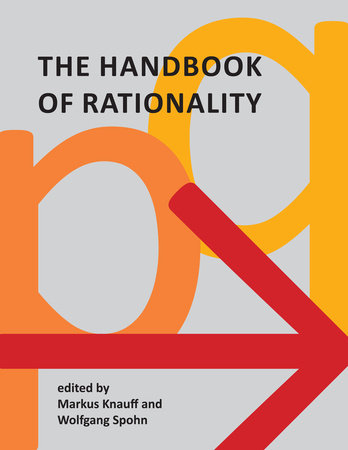 We are pleased to announce that "The Handbook of Rationality" is published! You can access it here for free. Enjoy reading about accounts on rationality from both psychological and philosophical perspective covering normative and descriptive theories. We emphasize Prof. Marco Ragni's contibution on rational reasoning about spatial and temporal relations.
We are pleased to announce that "The Handbook of Rationality" is published! You can access it here for free. Enjoy reading about accounts on rationality from both psychological and philosophical perspective covering normative and descriptive theories. We emphasize Prof. Marco Ragni's contibution on rational reasoning about spatial and temporal relations.
(Reported on 09.10.2023)
Participation in Dagstuhl-Seminar
 Research associate Jenny Rettstatt attended the Autumn School for Information Retrieval and Foraging (ASIRF) 2023 from 17 to 22 September. It is a five-day intensive seminar where 19 people from four different countries gathered at Schloss Dagstuhl in Wadern to learn about nine different topics in information retrieval and information behavior. A varied social program, such as a visit to Trier or game nights, complemented the scientific exchange.
Research associate Jenny Rettstatt attended the Autumn School for Information Retrieval and Foraging (ASIRF) 2023 from 17 to 22 September. It is a five-day intensive seminar where 19 people from four different countries gathered at Schloss Dagstuhl in Wadern to learn about nine different topics in information retrieval and information behavior. A varied social program, such as a visit to Trier or game nights, complemented the scientific exchange.
(Reported on 27.09.2023)
"Researchers in conversation" - video contribution of the TU Ilmenau
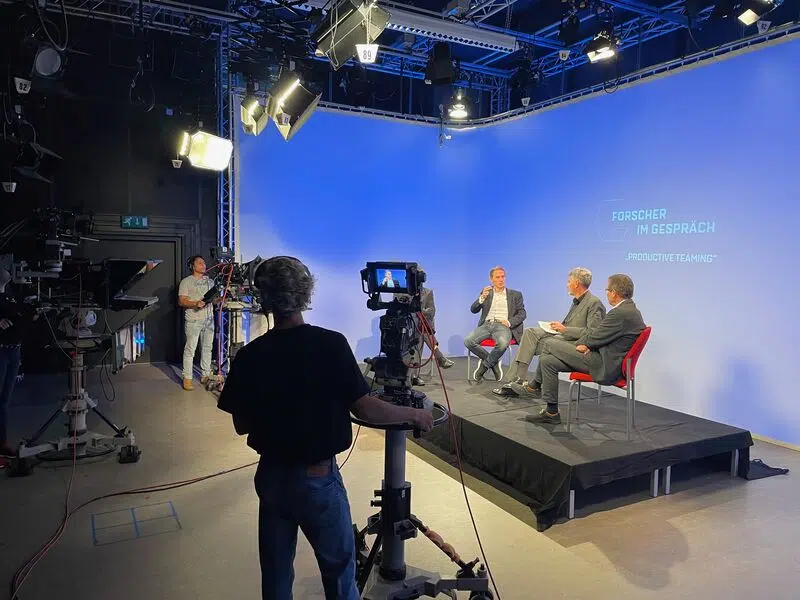 Researchers at Chemnitz University of Technology, Ilmenau University of Technology and Otto von Guericke University Magdeburg - united in the CHIM Network – are completely rethinking production in industry: Whereas since the Industrial Revolution humans have been the actors who got the machines running and always solved all the problems, Productive Teaming brings the machine into the team.
Researchers at Chemnitz University of Technology, Ilmenau University of Technology and Otto von Guericke University Magdeburg - united in the CHIM Network – are completely rethinking production in industry: Whereas since the Industrial Revolution humans have been the actors who got the machines running and always solved all the problems, Productive Teaming brings the machine into the team.
In the new episode of "Researchers in Conversation" Prof. Dr. Dr. Marco Ragni (TU Chemnitz), (TU Chemnitz), expert in cognitive psychology, neuroscience and artificial intelligence, Prof. Dr. Gunther Notni (TU Ilmenau), expert in sensor technology and human/machine interaction, and Prof. Dr. Frank Ortmeier (Uni Magdeburg), expert in software engineering, talk about the innovative concept of human/machine interaction, which is set to change the production process profoundly: Artificial intelligence, software and sensor technology on the one hand and humans on the other work together as a real team. Humans and intelligent machines adjust to each other, empathically coordinate their actions and thus organize production collaboratively. Productive Teaming is not a new manufacturing method - Productive Teaming is production rethought.
Marco Frezzella, press spokesman of the TU Ilmenau, leads through the conversation.
(Author: TU Ilmenau)
(Reported on 21.09.2023)
Researchers of the network "CHIM" discussed groundbreaking
findings at ISC 2023
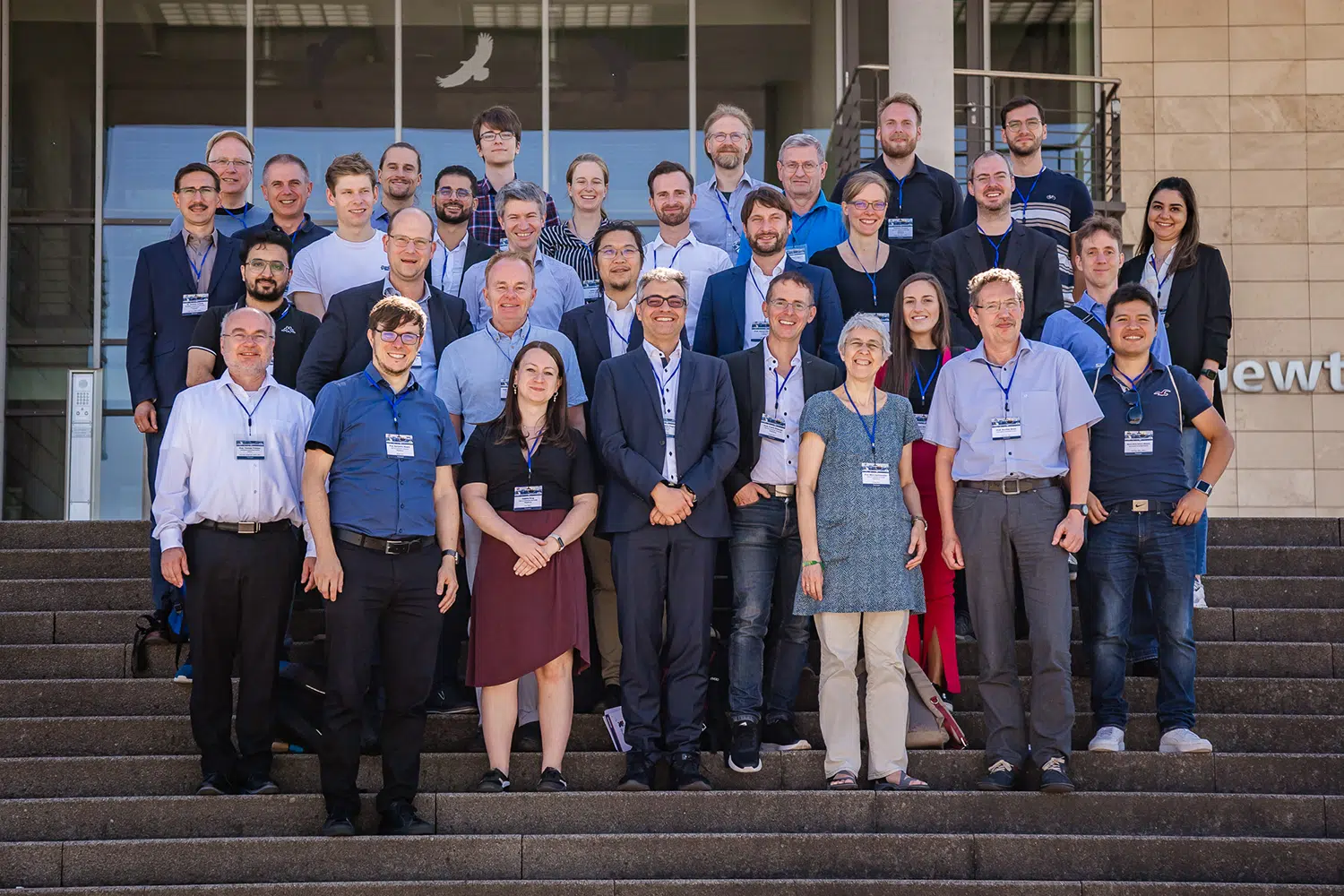 As part of the 60. Ilmenau Scientific Colloquium a session on "Productive teaming - Human-machine collaboration in the production environment" was held. The role of highly complex cyber-technical systems in meeting future challenges in human-centered production was discussed. Researchers in the CHIM Network emphasized the relevance of cross-university collaboration to drive innovation in this promising research field.
As part of the 60. Ilmenau Scientific Colloquium a session on "Productive teaming - Human-machine collaboration in the production environment" was held. The role of highly complex cyber-technical systems in meeting future challenges in human-centered production was discussed. Researchers in the CHIM Network emphasized the relevance of cross-university collaboration to drive innovation in this promising research field.
The colloquium provided a valuable opportunity for the Productive Teaming research initiative to exchange ideas with other international experts, learn about the latest trends and developments, and explore new collaboration opportunities. Prof. Ragni from TU Chemnitz said: "The initiative has already established itself as a key player in the research of human-system teamwork and aims to explore how effective, efficient and at the same time human-centered hybrid teams need to be designed.".
You can read the full report here.
(Authors: TU Ilmenau/Marlies Facius)
(Meldung vom 13.09.2023)
Visiting scientist at the professorship
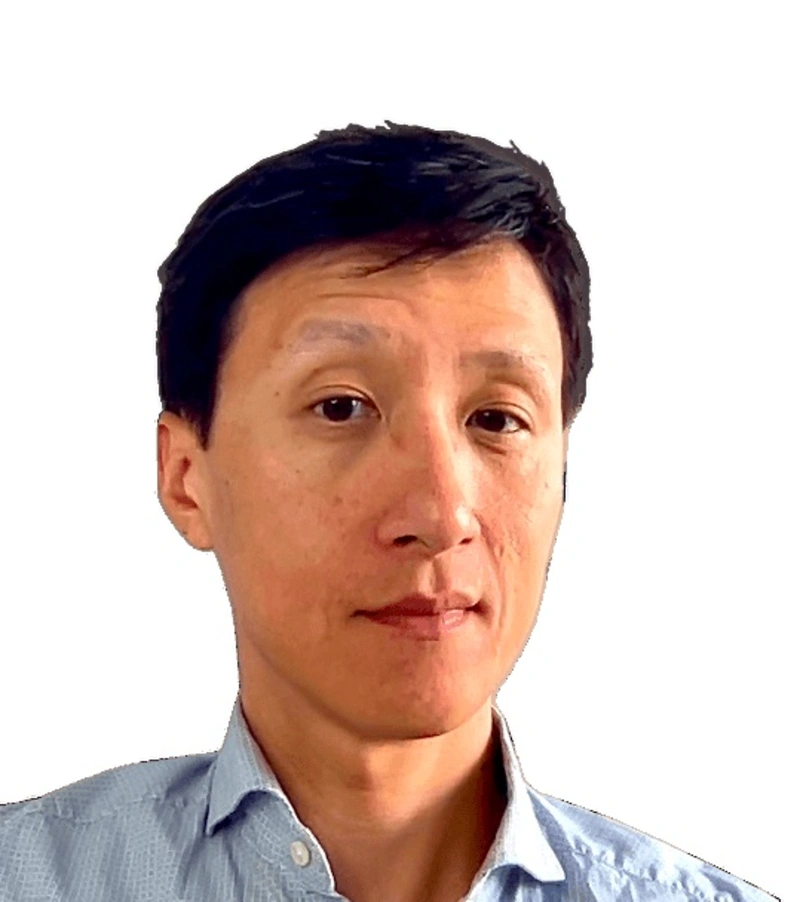 We are very pleased that Dr. Liu Ying-Hsang (Uppsala University, Schweden) (Uppsala University, Sweden) will conduct research as a visiting scientist at the Chair of Predictive Behavior Analysis for 6 months. His research interests focus on information science, particularly human-centered data science, at the interface of information retrieval, knowledge organization and human information behavior. His particular focus is on the development and evaluation of interactive information search systems. Recently, his research has focused on the application of artificial intelligence (AI) to digital humanities and the development of computational models for user-adaptive interfaces.
We are very pleased that Dr. Liu Ying-Hsang (Uppsala University, Schweden) (Uppsala University, Sweden) will conduct research as a visiting scientist at the Chair of Predictive Behavior Analysis for 6 months. His research interests focus on information science, particularly human-centered data science, at the interface of information retrieval, knowledge organization and human information behavior. His particular focus is on the development and evaluation of interactive information search systems. Recently, his research has focused on the application of artificial intelligence (AI) to digital humanities and the development of computational models for user-adaptive interfaces.
(Reported on 02.09.2023)
PVA at CogSci 2023
At CogSci this year we are representing our professorship with four (virtual) posters:- "Effect of Response Format on Syllogistic Reasoning" - Daniel Brand & Marco Ragni
- "Towards Bridging the Gap Between Conditional and Syllogistic Reasoning" - Sara Todorovikj, Daniel Brand & Marco Ragni
- "Are Facial Expressions Predictors for the Sense of Agency in a Dot Control Task?" - Tina Frenzel, Daniel Brand & Marco Ragni
- "The Impact of Personality for Solving Complex Problems" - Elisa-Maria Heinrich & Marco Ragni
The posters can be viewed on our employees' personal websites.
(Reported on 26.07.2023)
Präsentation at ICCM 2023
 Our research associate Daniel Brand Daniel Brand presented his article "Uncovering iconic patterns of syllogistic reasoning: A clustering analysis" at the ICCM ICCM in Amsterdam last week. Further information can be found hier.
Our research associate Daniel Brand Daniel Brand presented his article "Uncovering iconic patterns of syllogistic reasoning: A clustering analysis" at the ICCM ICCM in Amsterdam last week. Further information can be found hier.
(Reported on 26.07.2023)
Final workshop in Kaiserslautern
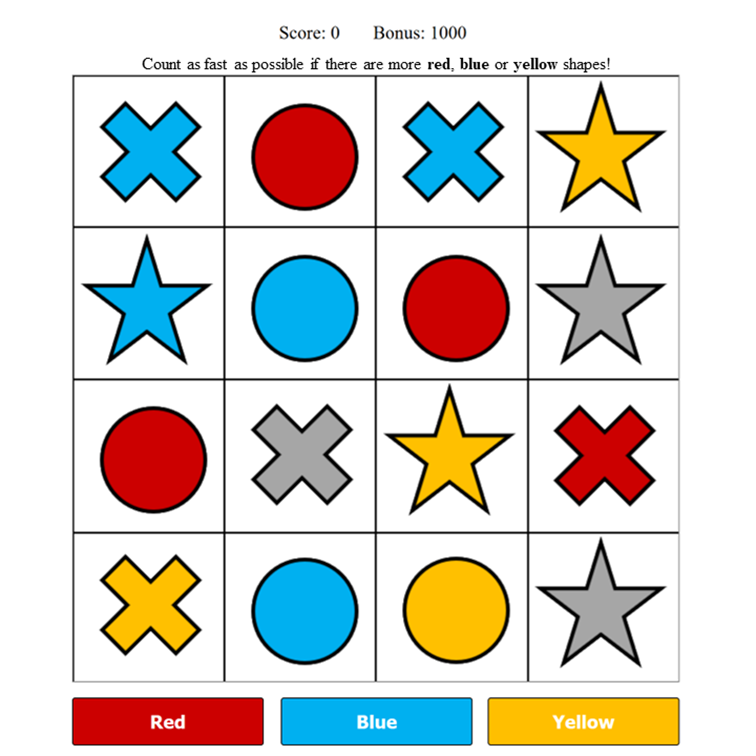 As part of the SPP 1921 "Intentional Forgetting in Organizations, the team from the DFG-funded FADEp project presents the results of its work to the DFG in Kaiserslautern.Prof. Marco Ragni as Principle Investigator, and our colleagues Daniel Brand and Tina Frenzel show demonstrations of the experiments carried out. More information and demonstrations can be found on the project website .
As part of the SPP 1921 "Intentional Forgetting in Organizations, the team from the DFG-funded FADEp project presents the results of its work to the DFG in Kaiserslautern.Prof. Marco Ragni as Principle Investigator, and our colleagues Daniel Brand and Tina Frenzel show demonstrations of the experiments carried out. More information and demonstrations can be found on the project website .
(Reported on 13.07.2023)
Presentation at ICCM 2023
 Our research associate Sara Todorovikj will present her article "Preferred Mental Models in Syllogistic Reasoning" at the Virtual ICCM The recording of the presentation can be viewed here .
Our research associate Sara Todorovikj will present her article "Preferred Mental Models in Syllogistic Reasoning" at the Virtual ICCM The recording of the presentation can be viewed here .
(Reported on 19.06.2023)
Paper for the ICCM
We are pleased to announce that the following submissions from our chair have been accepted for the 21st International Conference on Cognitive Modeling (ICCM):
"Uncovering Iconic Patterns of Syllogistic Reasoning: A Clustering Analysis" - Daniel Brand, Nicolas Riesterer & Marco Ragni
"Preferred Mental Models in Syllogistic Reasoning" - Sara Todorovikj, Daniel Brand, Marco Ragni
(Reported on 27.05.2023)
Productive Teaming Panel at Hannover Messe 2023: Human-centered production in focus!
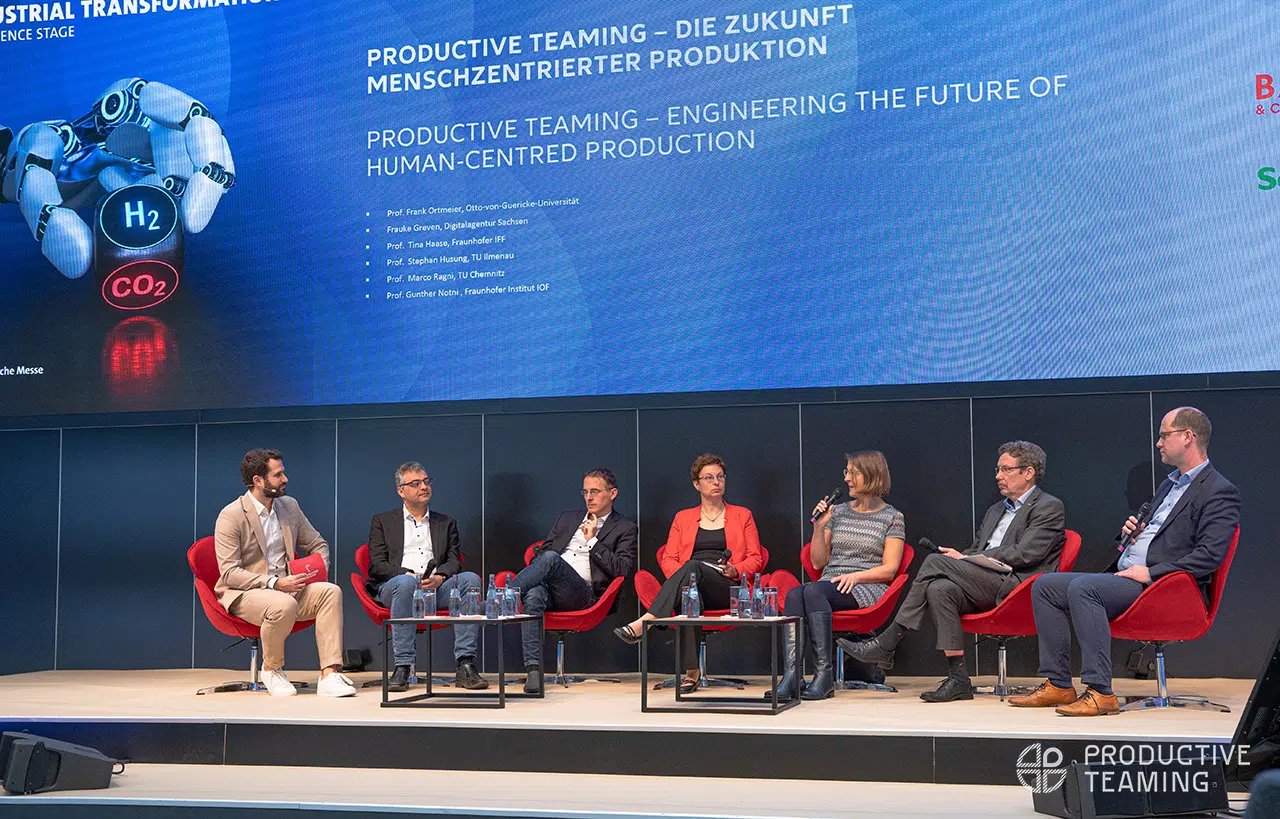 How can humans and machines work together as a team? Researchers from Chemnitz University of Technology, OVGU Magdeburg, Ilmenau University of Technology, the Fraunhofer IFF and the Digital Agency Saxony discussed these and other questions about "Productive Teaming" at Hannover Messe 2023 on April 21.
How can humans and machines work together as a team? Researchers from Chemnitz University of Technology, OVGU Magdeburg, Ilmenau University of Technology, the Fraunhofer IFF and the Digital Agency Saxony discussed these and other questions about "Productive Teaming" at Hannover Messe 2023 on April 21.
Participants in the panel discussion included Frauke Greven from the Digital Agency Saxony, Prof. Dr. Tina Haase from the Fraunhofer IFF Magdeburg, Prof. Dr. Frank Ortmeier from Otto von Guericke University Magdeburg, Prof. Dr. Gunther Notni and Prof. Dr. Stephan Husung from the TU Ilmenau and Prof. Dr. Marco Ragni from the TU Chemnitz.
Right at the beginning of the panel, Prof. Ragni, as one of CHIM's speakers, commented on the general classification of Productive Teaming: "Due to the constantly increasing product diversification, we need more and more individual solutions in the field of production in order to be able to deal with these challenges. However, these problem solutions should no longer rest solely on the shoulders of humans; we should also try to involve machines more and more."
The entire recording of the panel can be found on the Hannover Messe Website.
You can read the full report here.
(Author: Marlies Facius)
(Reported on 24.04.2023)
One symposium, three universities: Successful interdisciplinary dialog between scientists on the human-centered future of production
 On March 17, 2023, the symposium of the research initiative "Productive Teaming" took place at the TU Chemnitz. More than 40 scientists from different institutions of the Chemnitz-Ilmenau-Magdeburg Research and Innovation Network ("CHIM") accepted the invitation, including representatives from TU Chemnitz, OVGU Magdeburg, TU Ilmenau and the Fraunhofer Institutes in Chemnitz, Ilmenau and Magdeburg.
On March 17, 2023, the symposium of the research initiative "Productive Teaming" took place at the TU Chemnitz. More than 40 scientists from different institutions of the Chemnitz-Ilmenau-Magdeburg Research and Innovation Network ("CHIM") accepted the invitation, including representatives from TU Chemnitz, OVGU Magdeburg, TU Ilmenau and the Fraunhofer Institutes in Chemnitz, Ilmenau and Magdeburg.
At the opening of the symposium, the three coordinators of the research initiative, Prof. Dr. Dr. Marco Ragni (TU Chemnitz, Head of the Center for Humans and Technology and of the Professorship Predictive Analytics), Prof. Dr. Frank Ortmeier (OVGU Magdeburg, Head of the Professorship Software Engineering) and Prof. Dr. Gunter Notni (TU Ilmenau, Head of the Department Quality Assurance and Industrial Image Processing), presented both the research initiative itself and the grouping of the individual projects. Thus, the participants of the event could already get an overview of the topics and projects of the other participants.
In a concluding discussion, Prof. Ragni summarized the results of the day and gave an outlook on how these results can be integrated and further developed in the advancing research of Productive Teaming. Prof. Ragni: "The Productive Teaming symposium was a successful event that gave those involved in the research initiative the opportunity to gain valuable insights into the research activities of their colleagues and to enter into potential collaborations."
You can read the full report here.
(Author: Marlies Facius)
(Meldung vom 28.03.2023)
Previously: Guest lecture Prof. Dr. Martin Baumann
We would like to warmly invite you to a hybrid event on Friday, December 9th, 2022 from 1 p.m. to 2 p.m., which will take place as part of the SFB Hybrid Societies and the research colloquium of the Professorship of General Psychology I and Human Factors and the Professorship of Predictive Behavior Analysis. We are very pleased to have Prof. Dr. Martin Baumann (Ulm University) with a lecture on the topic “Challenges and current results in the design of cooperative human-automated vehicle interaction”.
Further information about the event and the associated Zoom link can be found in the attached flyer Flyer.
(Reported on 05.12.2022)
Previously: Guest lectures “Sense of Agency”
On November 22nd, 2022 we were able to welcome two guest scientists to the research colloquium: Dr. James Moore (Goldsmith's University of London, UK) and Dr. Zeynep Barlas (De Montfort University Leicester, UK) spoke about the experience of control (sense of agency) when interacting with technologies and provided interesting insights into their research. They discussed how and under what circumstances people experience control, explained the various challenges in capturing the subjective construct and discussed problems that arise in connection with current technological developments as well as potential solutions.
If you are interested, you can download the slides for both presentations below: Lecture Dr. James Moore and lecture Dr. Zeynep Barlas .
(Reported on 05.12.2022)
Previously: Reference to TeaP Symposium
For all those who have made a quick decision, today, March 23, 2022, we would like to point out a symposium under the heading Experimental validation of cognitive modeling at the conference of experimentally working psychologists (TeaP). Starts at 4 p.m. and ends around 5:15 p.m.
Link to the event:: Link
Link to the event schedule: Link
(Reported on 23.03.2022)
New release
We are pleased to announce a new successful publication entitled Survey: Artificial Intelligence, Computational Thinking and Learning by Nina Bonderup Dohn, Yasmin Kafai, Anders Mørch and Marco Ragni!
The publication can be found at the following link:Link
(Reported on 23.03.2022)
Previously: Invitation to the lecture
This week we are listening to Prof. Dr. Matthias Thimm from the FernUniversität Hagen on the topic of On Uncertainty and Inconsistency in Knowledge RepresentationThe lecture is open to all interested guests.
Time: Wednesday, January 12th, 2022, 3:30 p.m. - 5:00 p.m.
Location: Online via BigBlueButton
(Reported on 10.01.2022)
Previously: Invitation to the lecture
We look forward to the new year, Frau Prof. Dr. Nele Rußwinkel We welcome Nele Rußwinkel from the TU Berlin with a lecture on the topic of Context sensitive anticipation of the cognitive state in human machine interactions . As always, everyone who is interested is of course warmly invited.
For a successful collaboration between humans and intelligent systems mutual understanding of the task and environmental conditions is required. In addition, understanding the goal and expectations of the partner also needs to be considered. To address all these different aspects, joint interdisciplinary approaches are necessary to achieve this goal. For anticipating the partner, humans use internal models and shared representations of the situation and tasks. Cognitive architecture provide means to anticipate perceptual and cognitive processes, to predict the underlying expectations and decision in dynamically evolving situations. A few examples will be shown that provide first approaches of dynamic anticipation of cognitive processes and situation understanding that can be aligned with further information about the human partner such as motor actions, gazes, and ERPs (event related potentials). These examples address complex interaction situations such as pilots experiencing different kind of warnings in the cockpit, drivers of highly autonomous cars that need to take over control and users learning how to interact with new mobile applications.
Time: Wednesday, January 5th, 2022, 3:30 p.m. - 5:00 p.m.
Location:Online via BigBlueButton
(Reported on 03.01.2022)
Previously: Einladung zum Vortrag
Previously: Invitation to the lecture Next Wednesday, December 15th, 2021, we would like to welcome Ms. Christiane Attig on the topic of "Observable indicators of need for help in human-technology interaction: An overview of empirical studies from the KogSys young researcher project" as part of our colloquium.
All interested parties are warmly invited to take part and have a discussion afterwards.
Time: Wednesday, December 15th, 2021, 3:30 p.m. - 5:00 p.m.
Location: Online via BigBlueButton
(Reported on 14.12.2021)
Previously: Invitation to the lecture
This week we are hearing from Heiko Scharwächter in our colloquium on the topic of "Gaussian Memory Hidden Markov Models for Emotion Recognition." As always, everyone who is interested is warmly invited!
Time: Wednesday, December 8th, 2021, 3:30 p.m. - 5:00 p.m.
Location: Online via BigBlueButton
(Reported on 06.12.2021)
Previously: Invitation to the lecture
On Wednesday, November 24th 2021, we welcome both Ms. Christiane Attig from Chemnitz University of Technology with a lecture on the topic "Observable indicators of need for help in human-technology interaction: An overview of empirical studies from the KogSys young researcher project" , and Mr. Manuel Guth on the topic "A comparison between Machine Learning and Cognitive Models on Individual Human Reasoning in Optimal Stopping Problems." as part of our colloquium “Predictive Behavior Analysis”. As always, interested listeners are welcome!
Finding the highest or lowest value in sequentially presented options with no way of returning to a previously seen option and not knowing what the future options will look like, is a task that we face regularly e.g. while searching online for a plane ticket for the next vacation. Such a task is called an optimal stopping problem. This master’s thesis considers the state of the art cognitive models for modelling human reasoning in optimal stopping problems and adapts them to make predictions on the individual level i.e. how good are models in predicting when a reasoner decides for a presented option. These cognitive models are compared to several machine learning based models to evaluate if the absence of an underlying assumption of the reasoning process, which the cognitive models have, gives the machine learning models an advantage. The models are evaluated on two different optimal stopping problems with the machine learning models outperforming the cognitive models by roughly three percentage points predictive accuracy in both problems and reaching a maximum predictive performance of 92.62%.
Time: Wednesday, November 24th, 2021, 3:30 p.m. - 5:00 p.m.
Location: Online via BigBlueButton
(Reported on 22.11.2021)
Previously: Invitation to the lecture
Next Wednesday, November 3rd, 2021, we would like to welcome Ms. Kim Schmidt to our colloquium on the topic of the young researcher project KogSys: Detecting need for help using memory hidden Markov models .
All interested parties are warmly invited to take part and have a discussion afterwards.
Nachwuchsforscherprojekt KogSys: Erkennung von Hilfsbedürftigkeit mittels Memory Hidden Markov Models
Die Nachwuchsforschergruppe „Sozial agierende, kognitive Systeme zur Feststellung von Hilfsbedürftigkeit” (kurz KogSys, 2016-2019, https://www.tu-chemnitz.de/informatik/KI/projects/social/) verfolgt die Entwicklung eines sozial-kognitiven Systems zur Erkennung von Hilflosigkeit. Durch die Kombination einer fortschreitenden Automatisierung und Fortführung der aktuellen demografischen Entwicklung ergibt sich die gesellschaftliche Herausforderung, älteren Menschen möglichst lange ein selbstbestimmtes Leben und die Teilhabe am sozialen Leben zu ermöglichen. Auf Basis neuster Erkenntnisse der Künstlichen Intelligenz sollen daher Maschinen in die Lage versetzt werden, den Menschen besser zu verstehen und sich an den Menschen anzupassen. Als ersten wesentlichen Schritt in diese Richtung soll die Hilflsbedürftigkeit eines Menschen bei der Bedienung von Systemen erkannt werden. Im Rahmen dieses Vortrags wird das Teilprojekt der Physik vorgestellt, in dem die Erkennung von Hilfsbedürftigkeit mittels Memory Hidden Markov Models realisiert wurde. Dazu wurden sensorische Information wie Mimik, Körperhaltung und Bewegung, aber auch die Bedienung des Gerätes herangezogen. Der hierfür verwendete Datensatz aus der ersten Studie des Nachwuchsforscherprojekts wird ebenso vorgestellt.
Time: Wednesday, November 3rd, 2021, 3:30 p.m. - 5:00 p.m.
Location: Online via BigBlueButton
(Reported on 28.10.2021)
Previously: Invitation to the lecture
This week, .Ms. Hannah Dames , from the University of Freiburg, will give a lecture on the topic of "Memory Control in Working and Long-Term Memory " as part of our colloquium "Predictive Behavior Analysis" . As always, we would like to warmly invite everyone who is interested!
Time: Wednesday, December 1st, 2021, 3:30 p.m. - 5:00 p.m.
Location: Online via BigBlueButton
(Reported from 30.11.2021)
Previously: Invitation to the lecture - postponed to November 10th, 2021
On Wednesday, November 10th, 2021, we would like to invite you to another lecture as part of our colloquium “Predictive Behavior Analysis”. This time our guest will be Dr. Michael Tangermann from the Brain State Decoding Lab at the Albert-Ludwigs-Universität Freiburg will give us insights into the topic "Prediction of reaction times in a hand motor task based on oscillatory features of the electroencephalogram" .
Prediction of reaction times in a hand motor task based on oscillatory features of the electroencephalogram
Repeating the same motor task multiple times, we typically observe varying task performances even though experimental side conditions are kept as constant as possible. In the context of sports science, for rehabilitation after brain damage and for the use of brain-computer interfaces it may be interesting to know, if brain signals exist which are informative about the task performance. We conduced a study with healthy users and chronic stroke patients executing an isometric hand force task, and measured multiple performance metrics on a single-trial basis. Analysing the subjects' ongoing electroencephalogram (EEG) signals with machine learning methods, we found that oscillatory neural markers can be decoded from the multichannel EEG recordings, which not only are informative about the reaction time and other performance metrics in single trial, but which can also temporally predict the expected performance a few hundred milliseconds prior to task start. This research may add to the existing literature on near-threshold sensory stimulus perception, which is known to correlate with bandpower and the phase of neural signals. The possibility to predict motor performance may open the door to novel closed-loop training approaches in the medical and non-medical field.
Time:Wednesday, November 10th, 2021, 3:30 p.m. - 5:00 p.m.
Location: Online via BigBlueButton
(Reported on 21.10.2021)
Previously: Invitation to the lecture
We are pleased that we have Dr. Dr. on Wednesday, October 20th, 2021. We were able to win Matthias Beggiato for a lecture on the topic of “Sensory detection/prediction of discomfort in automated driving” as part of our “Predictive Behavior Analysis” colloquium.
We would like to warmly invite everyone who is interested.
Time: Wednesday, October 20th, 2021, 3:30 p.m. - 5:00 p.m.
Location: Online via BigBlueButton
Reported on 15.10.2021
Previously: CRC LECTURE SERIES
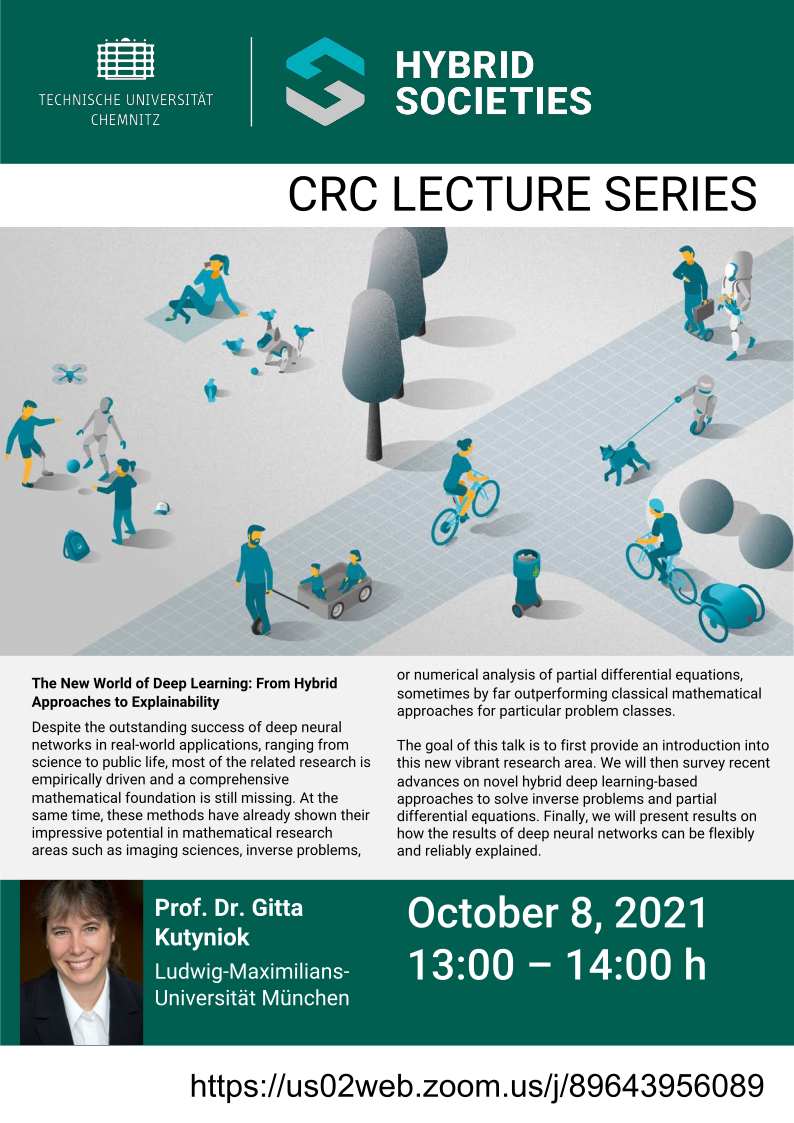 We would like to invite everyone who is interested to attend today's lecture by Prof. Dr. Gitta Kutyniok from the Ludwig Maximilian University of Munich on the topic The New World of Deep Learning: From Hybrid Approaches to Explainability . The lecture takes place as part of the CRC Lecture Series in the special research area "Hybrid Societies" at Chemnitz University of Technology.
We would like to invite everyone who is interested to attend today's lecture by Prof. Dr. Gitta Kutyniok from the Ludwig Maximilian University of Munich on the topic The New World of Deep Learning: From Hybrid Approaches to Explainability . The lecture takes place as part of the CRC Lecture Series in the special research area "Hybrid Societies" at Chemnitz University of Technology.
Time: Friday, October 8th, 2021, 1:00 p.m. - 2:00 p.m.
Location: Online via Zoom
(Reported on 08.10.2021)
Hiwis wanted!
We are currently looking for assistants with in-depth knowledge of programming with Python, preferably from the computer science department! Initial experience in the areas of machine learning and data analysis is also an advantage.
If you are interested in participating in our professorship, please contact one of our employees.
(Reported on 07.09.2021)
Hiwis wanted!
New appointment to the professorship
From the winter semester 2021/2022, the professorship for predictive behavior analysis will be filled by Prof. Dr. after a long break. Dr. Marco Ragni. We are therefore looking forward to lots of new, exciting and inspiring research and teaching content. In the next few days and weeks we will also be filling the professorship's website with lots of new and useful information. Have a good start into the new semester!
(Reported on 25.08.2021)






